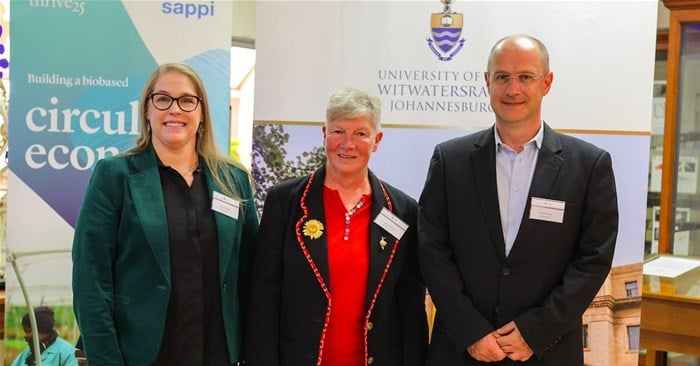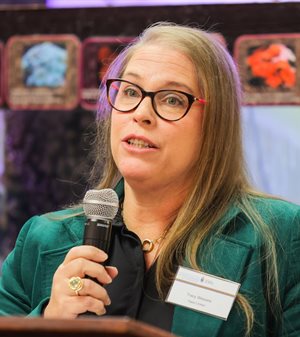
Related
Top stories


ESG & Sustainability#BudgetSpeech2026: SRD grant unchanged, other Sassa social grants see hike
7 hours




More news











ESG & Sustainability
South Africa’s carbon tax should stay: climate scientists explain why











In celebration of World Environment Day, this initiative aligns with Sappi’s drive to generate technical and operational solutions which mitigate against climate change risks and to enhance reporting on carbon emissions, climate change and sustainability. Professor Mary Scholes, who is an internationally recognised authority on tree physiology and climate change and who is affiliated with the research platform in the Wits School of Animal, Plants and Environmental Sciences, will act as the research chair.
Through the research chair, Professor Scholes is identifying critical research needs and developing research outputs related to climate change, which is one of the university’s eight research priorities. She will also lead the development of capacity to manipulate and interpret climate modelling data. The chair will further focus on developing and mentoring young and upcoming academics and research, through the funding for one post-doctoral fellow as well as bursaries for one masters and one honours student.
Speaking at the launch, Tracy Wessels, Sappi group head of sustainability and investor relations, commented: “The creation of this chair demonstrates Sappi’s commitment to building a thriving world through strong partnerships, supporting innovation and investing in future research capabilities.

“Like all other agricultural crops, the trees in the 399,996 hectares of land we own and lease are negatively impacted by climate change. While we practice climate-smart forestry and while our research teams have been hard at work developing drought resistant genotypes, the temperatures over the South African interior are projected to rise at about 1.5 to 2 times the global rate of temperature increase. In addition, there is increasing global pressure to account accurately for greenhouse gas emissions from forests, land and agriculture. Against this backdrop and in line with our commitment to UN SDG13: Climate Action, the need to develop climate solutions has intensified, which is why our sponsorship of the Sappi chair in climate change and plantation sustainability makes sound business sense.
“Our association with Wits is not new: In 2020, we began working on a project with other industry members and the Wits Global Change Institute on a project which involved the generation of raster – a rectangular pattern of parallel scanning lines followed by the electron beam on a television screen or computer monitor – climate surfaces for the entire forestry domain of South Africa, at a resolution of eight kilometres, with monthly time resolution, for the years 2020, 2030 and 2040 to 2100.
“We are looking forward to progressing our understanding of, and actions related to, climate change through replicable, workable methodologies.”
The work by Wits will help to enhance Sappi’s planning process and overall competitiveness. “Because forestry is a long-term crop, the industry needs to know well in advance where to direct their resources and investment and needs the most accurate climate models to rely on,” says Scholes.
The launch is taking place at the junction of three important developments: Firstly, it aligns with the Wits 2022/2023 centenary campaign which honours the university’s work in changing and shaping society for the better. Next, it is taking place at the same time as the Forum for Agricultural Research in Africa (FARA) in Durban (South Africa), where one of the key topics for discussion is the impact of climate change on the African continent. Finally, today is World Environment Day which this year, is focused on beating plastic pollution and transitioning to a circular economy. This theme is particularly meaningful for Sappi, given their portfolio of a broad range of woodfibre-based sustainable solutions as an alternative to fossil fuel-based, non-renewable packaging across many product segments.
Sappi’s initial sponsorship of the research chair will run until 2026.